Description of Flavor and Taste of Golden Standard Rosa Coffee Bean varieties in the Manor of Gesha Village Rosa Village, Ethiopia
Professional coffee knowledge exchange more coffee bean information please follow the coffee workshop (Wechat official account cafe_style)
Speaking of rosy summer coffee beans, almost everyone immediately remembered the rosy summer of Panama. Indeed, the rosy summer coffee grown in Panama, with rich citrus aroma, rich enchanting flower aroma, and the sweetness of almonds and nectar, is hard for many people to forget after drinking once. Is Rosa Coffee from Panama? No, Rose Summer originally came from Ethiopia. In front of this article, let's talk about Ethiopian Rose Summer Coffee, which is not very similar to Panamanian Rose Summer Coffee.

The rose coffee variety originates from the inaccessible Mount Rosa in southern Ethiopia and is located in the southwest of Ethiopia's Kafa forest near the border with Sudan. 1700-2100m above sea level. Why Rose Summer was born in Ethiopia but became famous but no longer in Ethiopia? Qianjie read the materials said: "Rosa is not a high-yielding coffee variety, the bean body is slender, flavor is not added, but can resist leaf rust, can be used to cultivate hybrid varieties of plants." From this point of view, the cultivation of rose summer in Ethiopia does not show the advantages of rose summer, while the soil and water of Panama and the bad planting environment of windbreak forests give full play to the flavor of this variety.
What is the Rose Summer Village Manor?
In 2007, documentary director Adam Overton and his photographer wife Rachel Samuel came into contact with the Gera Coffee Forest in the Banchi Magi region (Bench-Maji) while filming a documentary about Ethiopian coffee for the Ethiopian government. In the process, they not only got to know the great land of Ethiopia, but also came up with the idea of setting up their own coffee estates and brands. In 2009, they were lucky enough to meet the famous mule owner, BOP judge Willem Boot, and Willem Boot's idea of "returning to Ethiopia to find the birthplace of Rose Summer" also provided an opportunity for the couple.

In 2011 they returned to Banchi Maggie, where several areas are known as Rosa Village, where native Rosa varieties are most likely to be found. Adam followed Willem Boot to explore the surrounding forest and discovered a variety of wild coffee trees in a jungle surrounded by dense forests (known as the Gori Rose Summer Forest), of which the most surprising was the native Rosa species. So they collected seeds from native rose trees, screened them, and planted them in Rosa Village. And decided to build the estate here, named Gesha Village Coffee Estate, located about 12 miles in the Gori Rose Forest, covering an area of 475 hectares.
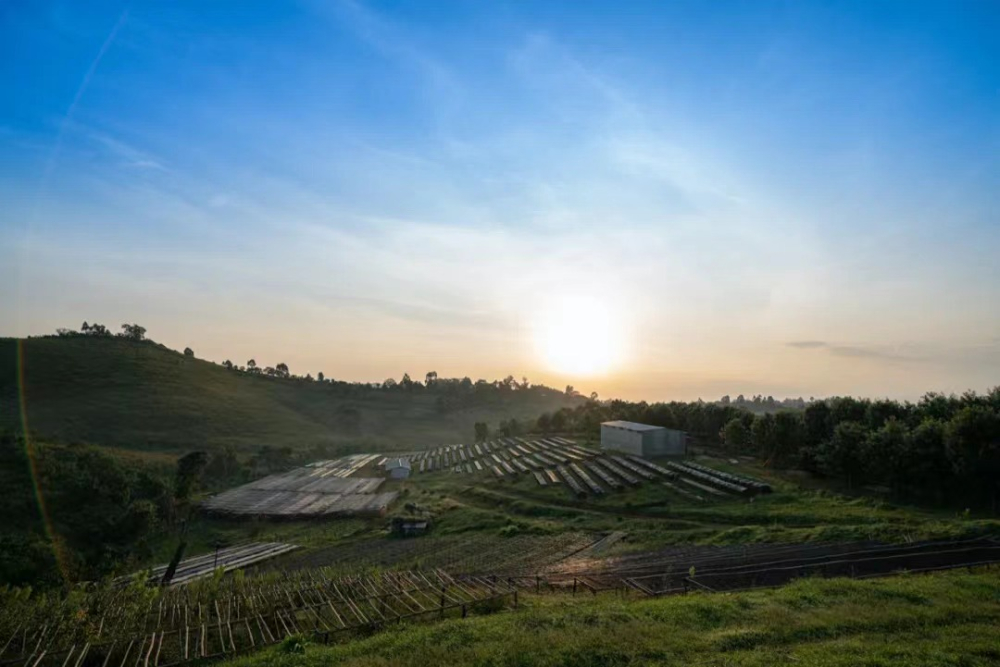
Unlike most small farms in Ethiopia, Gesha Village Coffee Estate is a large farm with nearly 500ha and has its own washing plant, laboratory and so on. Due to the enthusiastic response to the first harvest of Rosa Village in 2015, they held their first international bid on May 31, 2017, with the assistance of Willem Boot, the owner of the mule farm in Panama. Rosa Village offered 21 micro-batches, of which 19 were 120kg, while the others were even fewer. Many contestants chose some batches of this manor to participate in the competition and won the place, including Zhao Jiabao from Hong Kong who used Rosa Village Coffee to win the third place in the 2017 World barista Competition. In the same year, Japan's Guiji Ishiya also chose Rosa Village Manor Coffee to win the first Japanese barista Competition (JBC) of his 10-year competition.
Grading system of Guoxia Village
There is a strict grading system in the manor of Guoxia Village, which is competitive bidding, gold bid, red bid, green bid and Chaka batch.
Competitive bidding
Bidding batches only account for 3.7% of the annual output of Guoxia Village Manor, and the top batches of the manor are selected through layers of strict screening. Can only be obtained through global bidding.
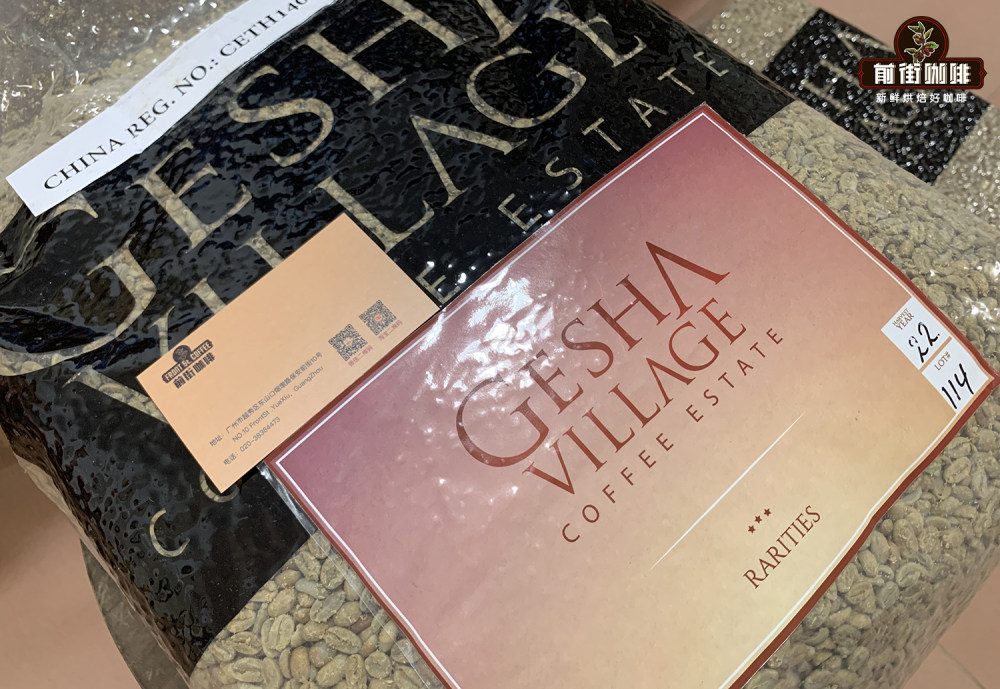
Gold standard RARITIES
Jinbiao batch of coffee accounts for about 10% of the annual output of Rose Xia Village Manor, the taste is complex, very rare. These rare coffees are the top coffee at the Rosa Village Manor except for bidding batches. Many baristas will choose gold standard batches as their competition beans, and bakers with high quality requirements will also purchase, with complete traceability, outstanding flavor and high complexity of each batch.
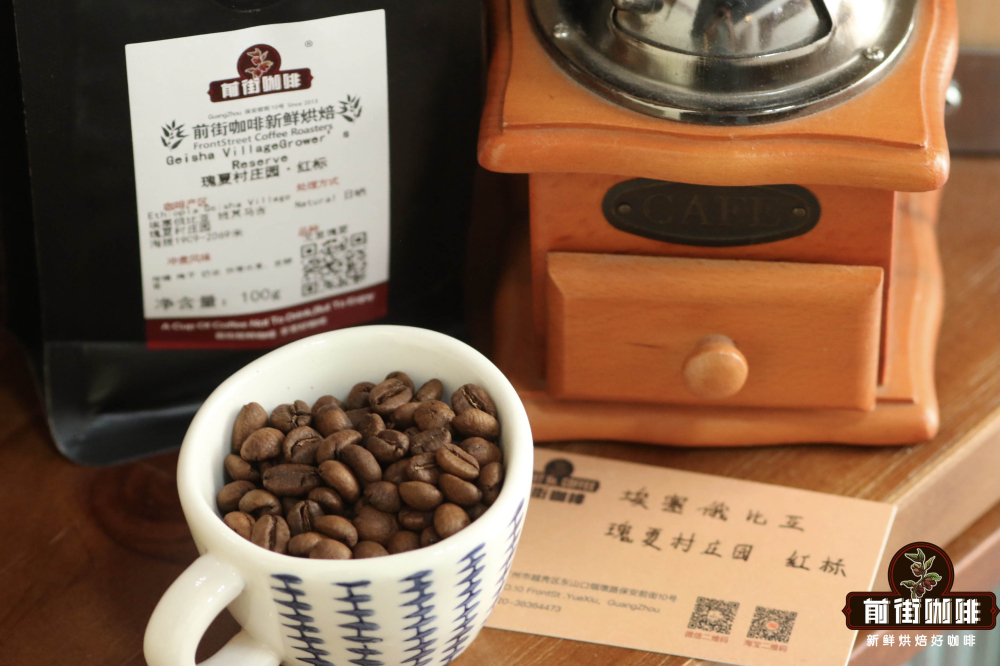
Red mark RESERVE
The coffee beans of the red standard batch account for about 15% of the annual output of the Ruoxia village manor, with complete traceability, the cup test score is more than 88 points (sca standard), has the typical Rosa village flavor, the flavor intensity and complexity are slightly weaker than the gold standard batch, and it is a single product batch with very high performance-to-price ratio.
Green SINGLE-TERROIR
The green label batch comes from a single plot of Guoxia Village Manor and is a batch of a single variety. The green label batch provides complete traceability information for each batch number, including the name of the farm plot, the variety of coffee and the date of processing.
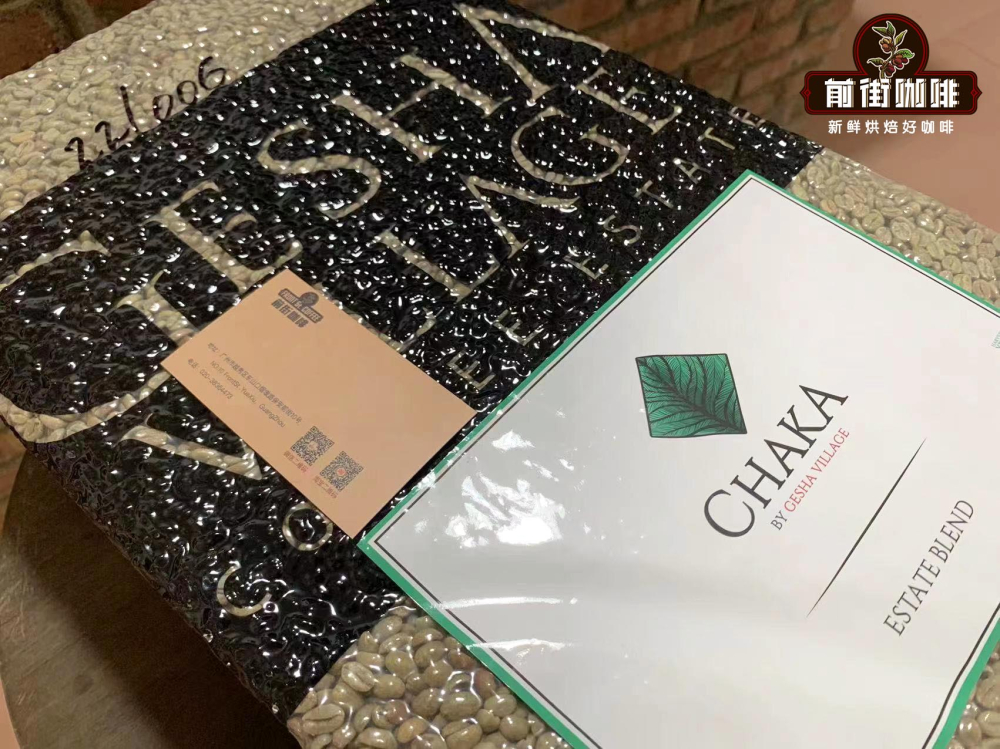
Chaka CHAKA
Chaka batches are mixed with coffee from all the plots on the estate and throughout the production season. Chaka batch of coffee has two treatments: sun treatment and water washing treatment, including three coffee varieties in Rose Summer Village Garden, namely Rose Summer 1931, Gori Rose Summer and illubabor.
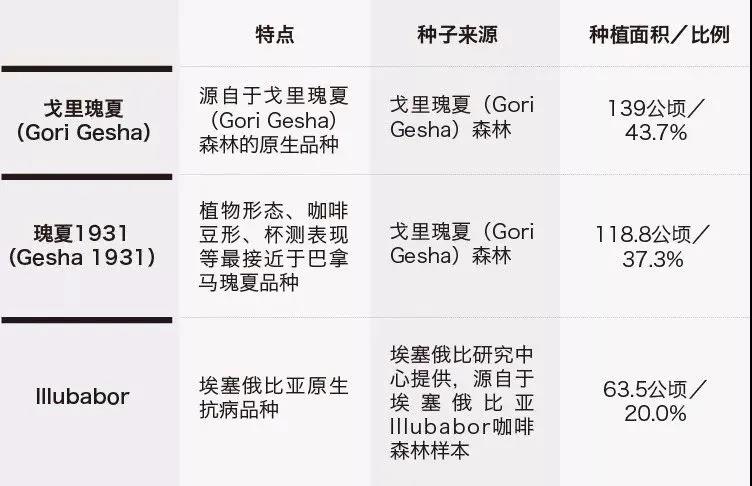
Treatment of coffee beans in Ruoxia Village
Qianjie coffee gold standard, red mark, CHAKA are all sun-treated.

First remove the floating impurities, and then cover the sun with a thin layer of plastic sheeting on the African-style elevated scaffolding. when drying with a tanning bed, they will be screened again to select worm-eaten beans and coffee beans that are green in color. The total drying time is 18-30 days. Qianjie Coffee Roxia Village Red label Coffee beans have always been loved by fans, but some people responded that they couldn't brew Rose Xia Village Red Standard well and always felt something bad. This time Qianjie Coffee would like to share how to brew Rose Xia Village Red label Coffee.
Before brewing, you should first know the coffee beans. The Rose Summer Manor in the Rose Village of Qianjie Coffee is located in Bancimaji, Ethiopia, while this red mark batch comes from the manor's Shewa-Jibabu plot, located in the northwest of the manor. Coffee trees are planted at an altitude of 1973 to 2069 meters.
This Rose Xia Village Red Standard Rose Summer belongs to the coffee beans in this year's new season, so the roasters of Qianjie Coffee extend the dehydration time when baking this coffee so that the bean surface and the bean core are heated evenly. In order to show the acidity and aroma of this coffee bean, light roasting was used. The color value of the bean was 77.1, and the color value after grinding was 81.

Qianjie barista re-tested the beans after the baking of the Hongbiao coffee beans in Rose Xia Village, which had been given the new season.
Through the cup test, it is found that the flavor of this Rose Village Red Rose Summer Coffee is obvious yellow drupe flavor, white flower flavor, slight tea feeling mixed with obvious cream aftertaste. The advantage is that the ultra-high sweetness brought by the exquisite sun treatment runs through all the time. Because of the high sweetness in the front section, the acidity is not sour, so it is a kind of soft acidity, while the creamy feeling at the end is more obvious. But the disadvantage is the lack of alcohol thickness, and the overall tastelessness after low temperature.
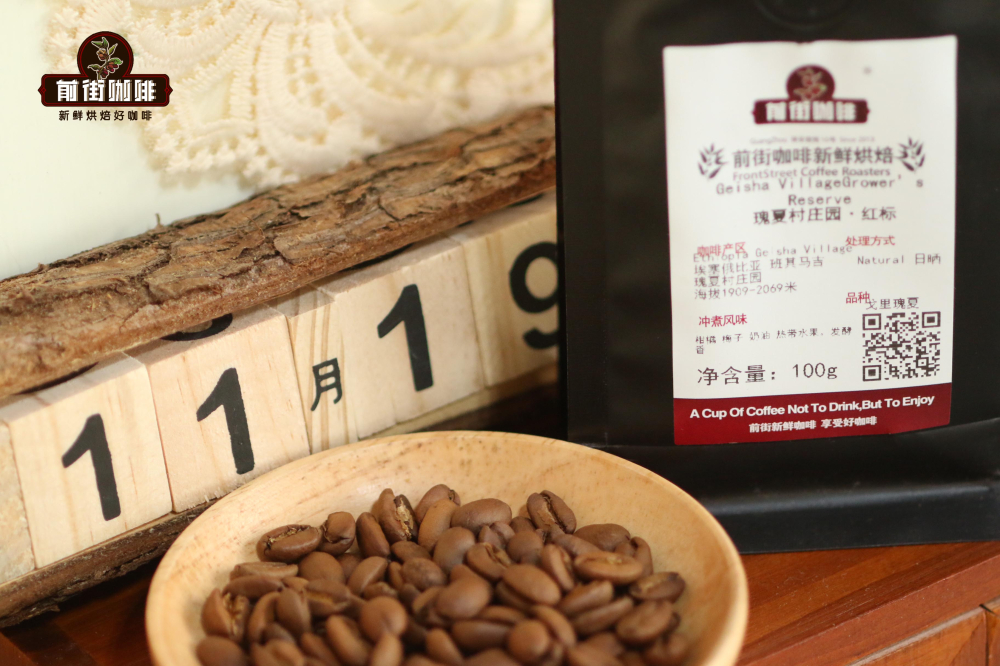
Adjust the cooking parameters
When we know a coffee bean, we can adjust the cooking parameters according to the bean. Through the cup test, we know that the advantage of this rose village red mark is high sweetness, but lack of mellow thickness, so the goal of brewing this coffee bean is to highlight the sweetness of this coffee as much as possible and increase the overall mellow thickness. In order to increase the thickness of alcohol, you can choose a finer grinding degree, increase the concentration of coffee and the extraction rate.
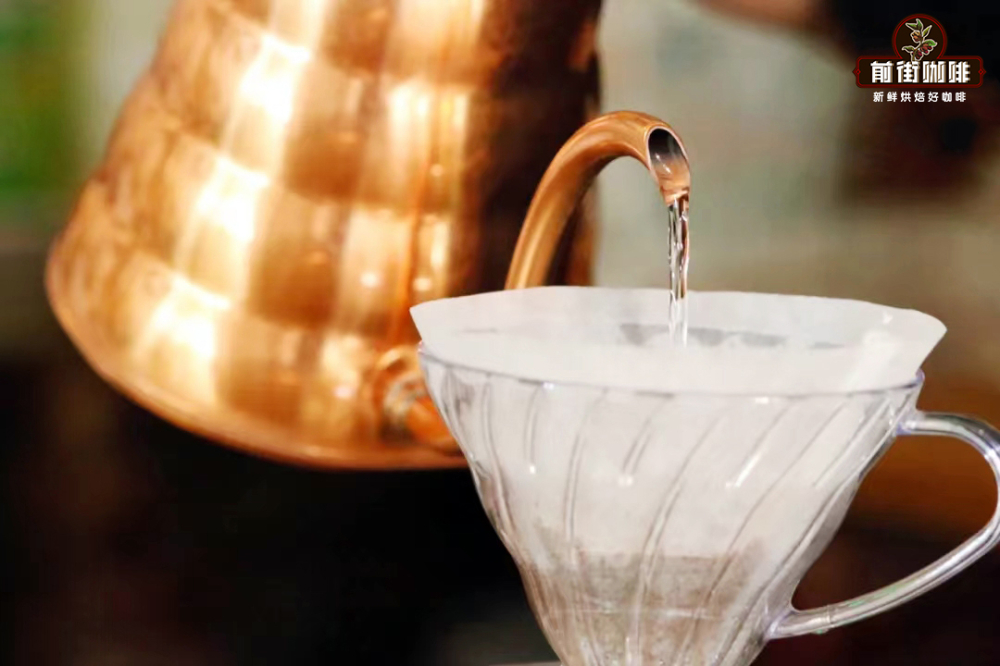
Qianjie cooking parameters
Filter cup: V600001
Water temperature: 91 ℃
Amount of powder: 15g
Powder / water ratio: 1:15
Degree of grinding: medium and fine grinding (Chinese standard No. 20 screen pass rate 80%)
Qianjie coffee uses staged extraction, steaming with 30 grams of water for 30 seconds, small water injection around the circle to 125 grams for segments, water level drop to 225 grams when the powder bed is about to be exposed, remove the filter cup when the water level drop is about to expose the powder bed, (steaming starts timing) the extraction time is 1 kilogram 39 percent 55 ". Through this brewing method, the concentration of the target coffee is about 1.32%, and the extraction rate is about 18.13%. This concentration belongs to the high value in the range of the golden cup criterion, but the extraction rate has only just reached the standard, using high concentration to increase the overall alcohol thickness of coffee.
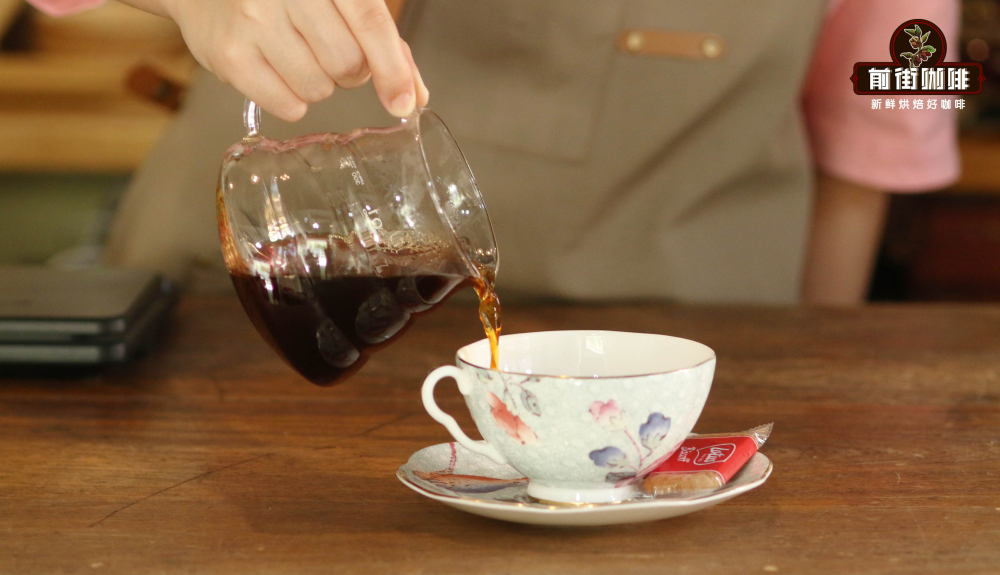
The Rose Xia Village Red Standard Rose Summer Coffee brewed in this way is citrus acid at high temperature, with mellow thickness, slightly lower temperature, soft acidity, yellow drupe flavor, creamy sweetness, slight flower aroma, slightly black aftertaste, and maple syrup and berries at low temperature.
For more boutique coffee beans, please add private Qianjie coffee on Wechat. WeChat account: kaixinguoguo0925
Important Notice :
前街咖啡 FrontStreet Coffee has moved to new addredd:
FrontStreet Coffee Address: 315,Donghua East Road,GuangZhou
Tel:020 38364473
- Prev
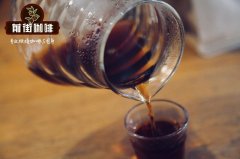
Seven plots of Green Diamond-Emerald Manor from Panama the citrus acid aroma of rose summer coffee beans exploded.
Professional coffee knowledge exchange more coffee bean information please follow the coffee workshop (Wechat official account cafe_style) Panama Esmeralda Manor was originally a 40-year-old but unknown coffee farm family, but since 2004, like drinking Bull, with a special aroma raw bean variety-Geisha Rosa Coffee, has been in the international coffee competition one after another.
- Next
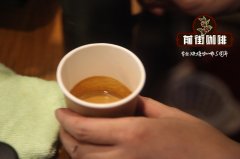
Introduction of flavor characteristic treatment method of Panamanian Ninety plus Baru volcano 90 + Rosa coffee variety
Professional coffee knowledge exchange more coffee bean information Please follow the coffee workshop (Wechat official account cafe_style) Rose summer coffee flavor comes from various nutrients in raw coffee beans during roasting, it is thermally degraded into various odors and molecular structures, producing flavors similar to various aromas. Good coffee beans are naturally rich in aroma, and there will be all kinds of nature at high, medium and low temperatures.
Related
- Detailed explanation of Jadeite planting Land in Panamanian Jadeite Manor introduction to the grading system of Jadeite competitive bidding, Red bid, Green bid and Rose Summer
- Story of Coffee planting in Brenka region of Costa Rica Stonehenge Manor anaerobic heavy honey treatment of flavor mouth
- What's on the barrel of Blue Mountain Coffee beans?
- Can American coffee also pull flowers? How to use hot American style to pull out a good-looking pattern?
- Can you make a cold extract with coffee beans? What is the right proportion for cold-extracted coffee formula?
- Indonesian PWN Gold Mandrine Coffee Origin Features Flavor How to Chong? Mandolin coffee is American.
- A brief introduction to the flavor characteristics of Brazilian yellow bourbon coffee beans
- What is the effect of different water quality on the flavor of cold-extracted coffee? What kind of water is best for brewing coffee?
- Why do you think of Rose Summer whenever you mention Panamanian coffee?
- Introduction to the characteristics of authentic blue mountain coffee bean producing areas? What is the CIB Coffee Authority in Jamaica?

